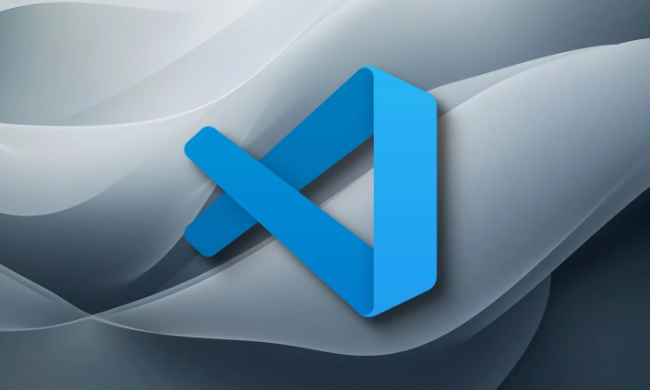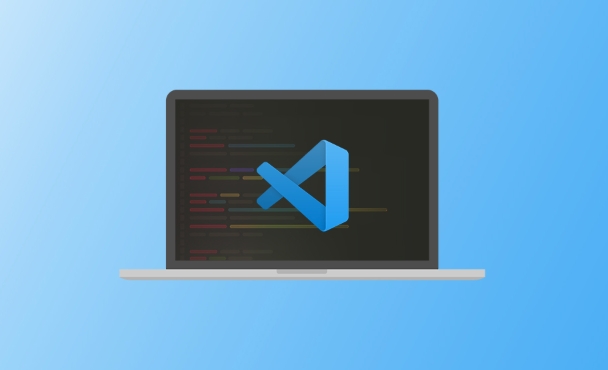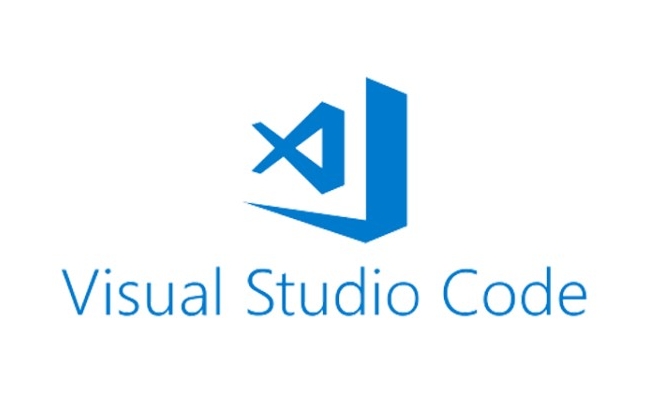To keep VSCode's theme settings consistent on multiple Linux machines, you can use the following three methods: 1. Use the built-in GitHub account synchronization function of VSCode, synchronize upload configurations through File > Preferences > Enable settings, and log in to the same GitHub account to download on other devices; 2. Manually copy the settings.json file (the path is ~/.config/Code/User/settings.json) to overwrite the corresponding files of the target device; 3. Create a dotfiles repository for version control, add the configuration file to the Git library and create symbolic links on each device to point to the file. These three methods are applicable to different needs, from automatic synchronization to fine control.

If you use VSCode across multiple Linux machines and want to keep your theme settings consistent, there are practical ways to do it without manually copying everything every time. The key is leveraging built-in features or simple tools that streamline the process.

Use VSCode Settings Sync (Built-in GitHub Account Sync)
VSCode has a built-in Settings Sync feature that uses your GitHub account to sync themes, extensions, settings, and more across devices.

- Sign in with your GitHub account via
File > Preferences > Turn on Settings Sync - Once enabled, your current settings—including the active theme—are uploaded to the cloud
- On another machine, just sign in with the same account and download the synched data
This works great if you're OK with storing your preferences on GitHub. It's seamless and requires no manual file handling.
Manually Copy the settings.json File
If you prefer full control or don't want to use cloud synchronization, you can manually copy your VSCode configuration files between machines.

The main file for theme and appearance settings is located at:
~/.config/Code/User/settings.json
To sync it:
- Copy this file from your source machine
- Paste it into the same location on the target machine
- Restart VSCode
Note: This will overwrite any local settings on the destination machine, so be careful when replacing it.
You may also want to check:
-
~/.config/Code/User/keybindings.json(for custom keyboard shortcuts) -
~/.config/Code/User/globalStorage/state.vscdb(some UI state info)
Use a Dotfiles Repository for Better Control
For developers who like managing config files systematically, setting up a dotfiles repo is a solid long-term solution.
Here's how it works:
- Create a Git repository (eg, on GitHub) for your config files
- Add your VSCode settings files to it
- On each machine, clone the repo and create symbolic links to the config folder
Example commands:
ln -sf ~/dotfiles/vscode/settings.json ~/.config/Code/User/settings.json
This method gives you version control, easy updates, and a way to back up all your dev environment preferences in one place.
That's basically how you can keep your VSCode theme and settings aligned across Linux systems. Whether you go for the built-in sync or a manual/dotfiles approach depends on how much control you want and how often you switch machines.
The above is the detailed content of How to sync VSCode theme settings across multiple Linux machines. For more information, please follow other related articles on the PHP Chinese website!

Hot AI Tools

Undress AI Tool
Undress images for free

Undresser.AI Undress
AI-powered app for creating realistic nude photos

AI Clothes Remover
Online AI tool for removing clothes from photos.

Clothoff.io
AI clothes remover

Video Face Swap
Swap faces in any video effortlessly with our completely free AI face swap tool!

Hot Article

Hot Tools

Notepad++7.3.1
Easy-to-use and free code editor

SublimeText3 Chinese version
Chinese version, very easy to use

Zend Studio 13.0.1
Powerful PHP integrated development environment

Dreamweaver CS6
Visual web development tools

SublimeText3 Mac version
God-level code editing software (SublimeText3)

Hot Topics
 How to set a default formatter in vscode settings?
Jun 27, 2025 am 12:01 AM
How to set a default formatter in vscode settings?
Jun 27, 2025 am 12:01 AM
To set the default formatting tool in VSCode, you must first install extensions of the corresponding language, such as Prettier, Black or ESLint. 1. Open the settings and search for "DefaultFormatter", edit the settings.json file to specify the default formatting tools for each language, such as using "esbenp.prettier-vscode" to handle JavaScript, and "ms-python.black-formatter" to handle Python. 2. Optional global settings, but it is recommended to configure them separately by language. 3. Enable "FormatonSave"
 How do I use VS Code with React?
Jun 18, 2025 am 12:14 AM
How do I use VS Code with React?
Jun 18, 2025 am 12:14 AM
TooptimizeReactdevelopmentinVSCode,installessentialextensionslikeESLintandPrettierforcodeconsistency,setupanewprojectusingCreateReactAppviathebuilt-interminal,organizefilesmodularlyundersrc/withseparatecomponentsandpagesfoldersforscalability,utilizeE
 How do I use the 'Find and Replace' feature in VS Code?
Jun 19, 2025 am 12:06 AM
How do I use the 'Find and Replace' feature in VS Code?
Jun 19, 2025 am 12:06 AM
The best way to make batch modifications in VSCode is to use the Find and Replace feature. 1. Use "Find and Replace" in a single file: Press Ctrl H to open the panel, enter the search and replace content, and click "Replace" or "Replace All". 2. Search across multiple files: Press Ctrl Shift F to open the search tab, expand the replacement section, and select the replacement operation for a single file or entire project. 3. Use advanced options: such as case sensitivity, full word matching and regular expressions for more precise control, such as matching numbers with \d or using capture groups for complex replacements. This feature significantly improves code maintenance efficiency through fast and precise editing.
 How do I view the Git history in VS Code?
Jun 26, 2025 am 12:09 AM
How do I view the Git history in VS Code?
Jun 26, 2025 am 12:09 AM
Viewing Git history in VSCode can be achieved through the built-in Git extension. The specific steps are as follows: 1. Open the Git sidebar on the left, view the list of recent submissions and select a specific submission; 2. View the file modified by the submission and line-by-line differences in the right panel, and right-click the file to perform restore changes and other operations; 3. Right-click the file in the editor and select "Open Timeline", and use the timeline view to view the historical change record of the file. These steps allow you to easily track project changes without relying on external tools.
 How do I download and install VS Code on my operating system?
Jun 24, 2025 am 12:04 AM
How do I download and install VS Code on my operating system?
Jun 24, 2025 am 12:04 AM
TodownloadandinstallVisualStudioCode,firstchecksystemrequirements—Windows10 (64-bit),macOS10.13 ,ormodernLinuxdistributions—thenvisittheofficialwebsitetodownloadthecorrectversionforyourOS,andfollowinstallationstepsspecifictoyourplatform.Beginbyensuri
 How do I change the indentation settings in VS Code (tabs vs. spaces)?
Jun 23, 2025 am 12:05 AM
How do I change the indentation settings in VS Code (tabs vs. spaces)?
Jun 23, 2025 am 12:05 AM
TochangeindentationsettingsinVSCode,openSettingsandtoggle"InsertSpaces"toswitchbetweentabsandspaces.1.Adjusttabsizebysearchingfor"TabSize"andsettingyourpreferredvalue.2.Configurelanguage-specificsettingsbyeditingthesettings.jsonfi
 VSCode debugger for Java setup guide
Jul 01, 2025 am 12:22 AM
VSCode debugger for Java setup guide
Jul 01, 2025 am 12:22 AM
The key steps in configuring the Java debugging environment on VSCode include: 1. Install JDK and verify; 2. Install JavaExtensionPack and DebuggerforJava plug-in; 3. Create and configure the launch.json file, specify mainClass and projectName; 4. Set up the correct project structure to ensure the source code path and compilation output are correct; 5. Use debugging techniques such as Watch, F8/F10/F11 shortcut keys and methods to deal with common problems such as class not found or JVM attachment failure.
 How do I set up VS Code for Java development?
Jun 29, 2025 am 12:23 AM
How do I set up VS Code for Java development?
Jun 29, 2025 am 12:23 AM
To use VSCode for Java development, you need to install the necessary extensions, configure the JDK and set up the workspace. 1. Install JavaExtensionPack, including language support, debugging integration, build tools and code completion functions; optional JavaTestRunner or SpringBoot extension package. 2. Install at least JDK17 and verify through java-version and javac-version; set the JAVA_HOME environment variable, or switch multiple JDKs in the status bar at the bottom of VSCode. 3. After opening the project folder, make sure the project structure is correct and enable automatic saving, adjust the formatting rules, enable code checking, and configure the compilation task to optimize the opening.






